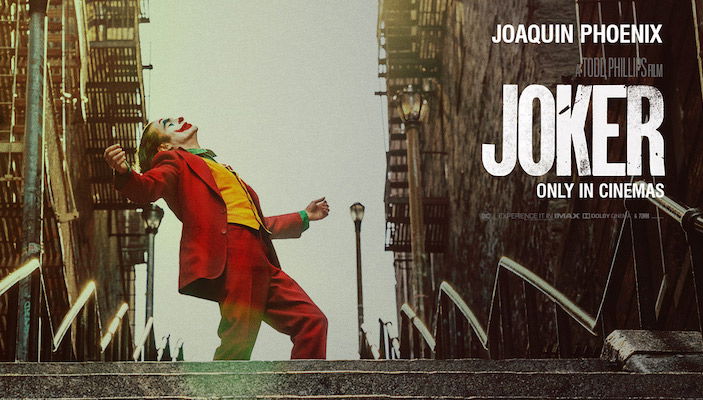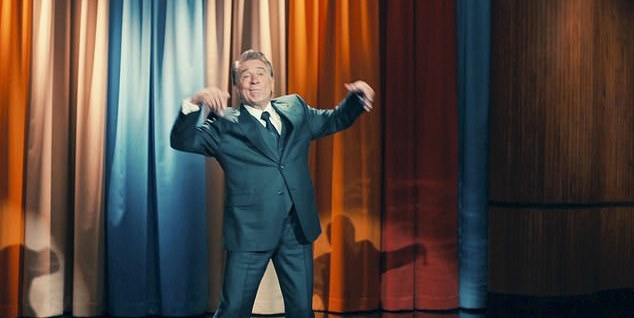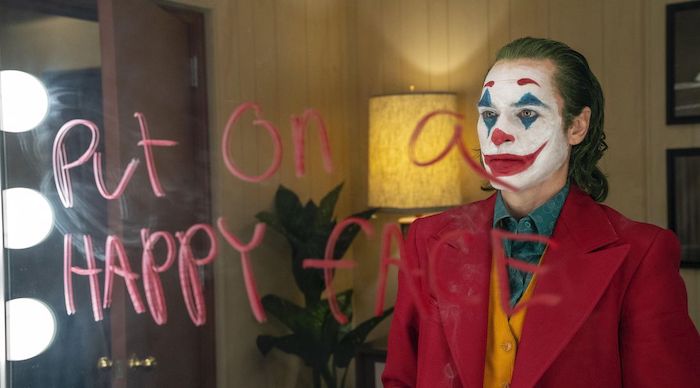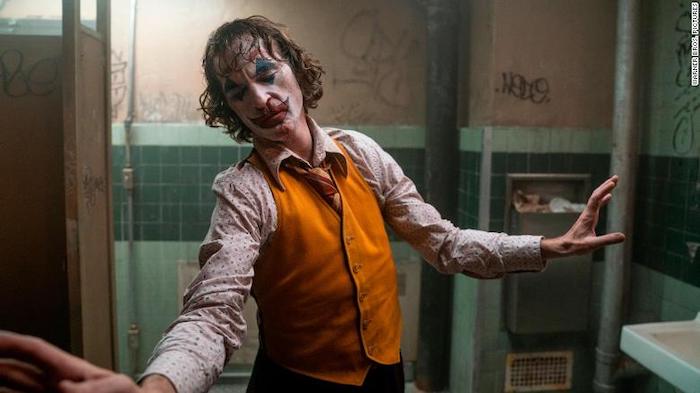When I bought tickets to see this movie, I wasn’t sure what I was going to get. There was a lot of praise in the early days, followed by a lot of backlash as more people saw it outside of the film circuit. Still, I went in with as open a mind as I could. What I found was the kind of Joker movie I was always hoping they would make. An origin story that is not a glorified love letter nor an indictment of a trope but an actual character study in the cross section of internalized trauma and continued societal stigmatization.
Joker follows Arthur Fleck, a wanna-be comedian who works as a rent-a-clown to support his ailing mother in Gotham. Arthur has mental problems, including uncontrollable laughter, and sees a social worker after spending a stint in Arkham. One day, after being fired from his gig, he kills three men who are beating him. After that, Gotham erupts into protests and Arthur goes on a journey of self-discovery, with some harsh truths coming to life.
Joker is one of those movies that are designed to either be loved or hated. It’s easy to see why disaffected young men might identify with Arthur, a character who is looking around and wondering where all the decency went. It’s also easy to see why women and people of color might identify with the other characters, looking at this man and wondering why he’s looking for decency when it’s been missing since, well, forever. But in a way I think that’s part of what makes the film great — Arthur is very, very human. He has good intentions and bad ones, he acts out in kindness but also in hate and revenge. He’s mentally and emotionally fragile after a lifetime of abuse, neglect, and literal brain damage. He is not a hero but he’s not entirely a villain until the final scenes of the film.
Joker is basically carried on the shoulders of Joaquin Phoenix. I mean this is one of those performances that takes someone from a good actor to a renowned one. Phoenix plays the transition from meek man just trying to do his best to detached lunatic who happens to be at the center of an anarchic movement. The way he moves, the way he talks, the general awkwardness of his being that transforms into a strange bravado is masterfully done. It is one of those performances where the actor seems to slip away and you forget you’re not looking at a person who really exists. The way Phoenix laughs, mimicking the kind of uncontrollable laughter of pseudobulbar affect, is as heartbreaking as it is unsettling. I know comic book movies don’t tend to get the Oscar nods, but I do think he will be a strong contender for a lot of best acting awards.
Robert DeNiro is also great as Murray Franklin, a comedian and TV show host that Arthur idolizes who ultimately belittles and mocks him. He’s got the same kind of flowy, dance like movements, which is probably what Arthur is replicating, and it makes him a fascinating figure to watch. I haven’t seen a lot of praise for Frances Conroy, who plays Arthur’s mother Penny, but I thought she was excellent at playing this subtly biting, gaslighting woman. You get a sense that she has no real fondness for Arthur, and generally just prods and insults him.
If there’s one other aspect of this film that deserves a shout-out, it’s the production design. This is a beautifully shot, beautifully designed movie. Gotham City has a real sense of grit and grime, one that is both reminiscent of the 1980’s New York and the overall comic aesthetic. While the background tends to be washed out, colors on clothing pop. The lighting in scenes where Arthur is dancing or otherwise lost in himself are gorgeous and dream-like. There’s this very distinct, soothing-blue light that comes in when Arthur is feeling good about himself, only to be replaced with a very agitated orange when things fall apart. Seriously, this movie is worth watching just to see some quality design work in action. Say what you will about Todd Philips’ resume, he knocked it out of the park.
But the movie is not quite perfect. Zazie Beetz, who plays the love interest, is wasted as she gets very few lines. I mean, points for not having Arthur brutally murder her and her kid when she rejects him (which, I have to admit, is where I worried this was going), but I wish she had more of a part.
I’d like to talk a little more in depth about the film’s themes and ending, so to be safe, let’s go ahead and throw up a spoiler warning:
For me, Joker presents a narrative of trauma and society. Arthur is insane, that much is abundantly clear, but his condition is a product of sustained abuse. We know his mother Penny allowed him to be beaten and starved as a child, but even in her interactions with him as an adult, she undermines and ignores him. As such, Arthur retreats into a world of delusions, looking for attention, praise, comfort and affection, all normal needs and desires. However, the interesting part happens when his delusions are broken one by one, including ones about his own identity. Rather than killing himself or coming to terms with what is real through healthy coping, Arthur opts to lash out against those he feels have betrayed him. If the world will not act “decently”, he decides, then neither will he.
From then on out, the film is total catharsis. Arthur kills his mom, he kills his coworker, he kills Murray, he escapes police custody, and even as a prisoner in Arkham, he continues to kill those who displease him. He gets to make the jokes now, and he doesn’t care who thinks he’s funny. Arthur, now Joker, has broken free of his restraints, and no longer cares about how others see him or even trying to fit into a society. And yes, that is ultimately a scary thing — the only reason we, as a civilization, continue on is because we’ve signed a social contract to behave and not murder each other. That why I think the ending, where Joker ends up in Arkham, is a good one, because it’s the only way the Joker can remain…well, the Joker. If all is anarchy, then he is no longer needed; putting him back in a cell provides the contrast needed for his character to survive.
I understand why some people are hesitant about this film. We’ve already got plenty of movies that celebrate shitty people, particularly shitty white men, who do terrible, violent things that we are supposed to root for and feel bad for. However, I don’t think that’s the point of Joker. We feel bad for Arthur, sure, but we’re always kept at a little bit of a distance by his creepy mannerisms, out-there ideas and general inability to connect with others. We never really get to inhabit the mental gymnastics he performs in order to do the brutal things he does, and his rise to power (so to speak) isn’t one of grandeur, it just sort of happens by accident.
What isn’t an accident is that the system fails in preventing all this from happening. All of this murder and destruction could have been avoided with properly funded healthcare, child support, and welfare. Joker is as much a monster that Gotham made as Batman is/will be. Joker as a character might not be political, but this movie certainly is. It is kind of weird to see the 1980’s aesthetic mixed in with 21st century ideas of killing the rich and demanding economic equality, but for the story they are telling, it works. Joker is failed by everyone, but ultimately it all ties back to being failed by the system, specifically by not being acknowledged by it in the first place.
There are some theories circulating that Joker is in fact mostly imaginary, which I kind of like too. I’m not saying I would be mad if everything was real (except the parts that were clearly delusions), but the idea that Arthur has been in Arkham all this time, imagining this kind of situation where he ends up inciting riots and getting Bruce Wayne’s parents killed (I mean, how could he have known that had happened?) is great. Doesn’t change anything about the character per se, but it would be more insightful to how Arthur/Joker sees himself. I can already foresee all of the various video essays pulling this film apart, and I am here for it.
Ultimately, Joker could have been a trainwreck or, somehow worse, boring. The Joker lends himself to be the icon of some pretty gross and frankly bland ideologies about right and wrong. Rather than build a character that is ideologically unsound and needlessly violent, Todd Philips and Joaquin Phoenix create a man pushed to the fringes of society and his own sanity to comment on real-life stigmatization and failing social institutions. And damn if it doesn’t look good doing it. He’s not the Joker we deserve, but he might just be the one we needed.
Summary
Joker is a great film that takes a character that easily could have been turned into walking trope and fleshed it out to a dramatic, tragic portrayal that speaks to large themes, all while presenting stellar production design and cinematography.







